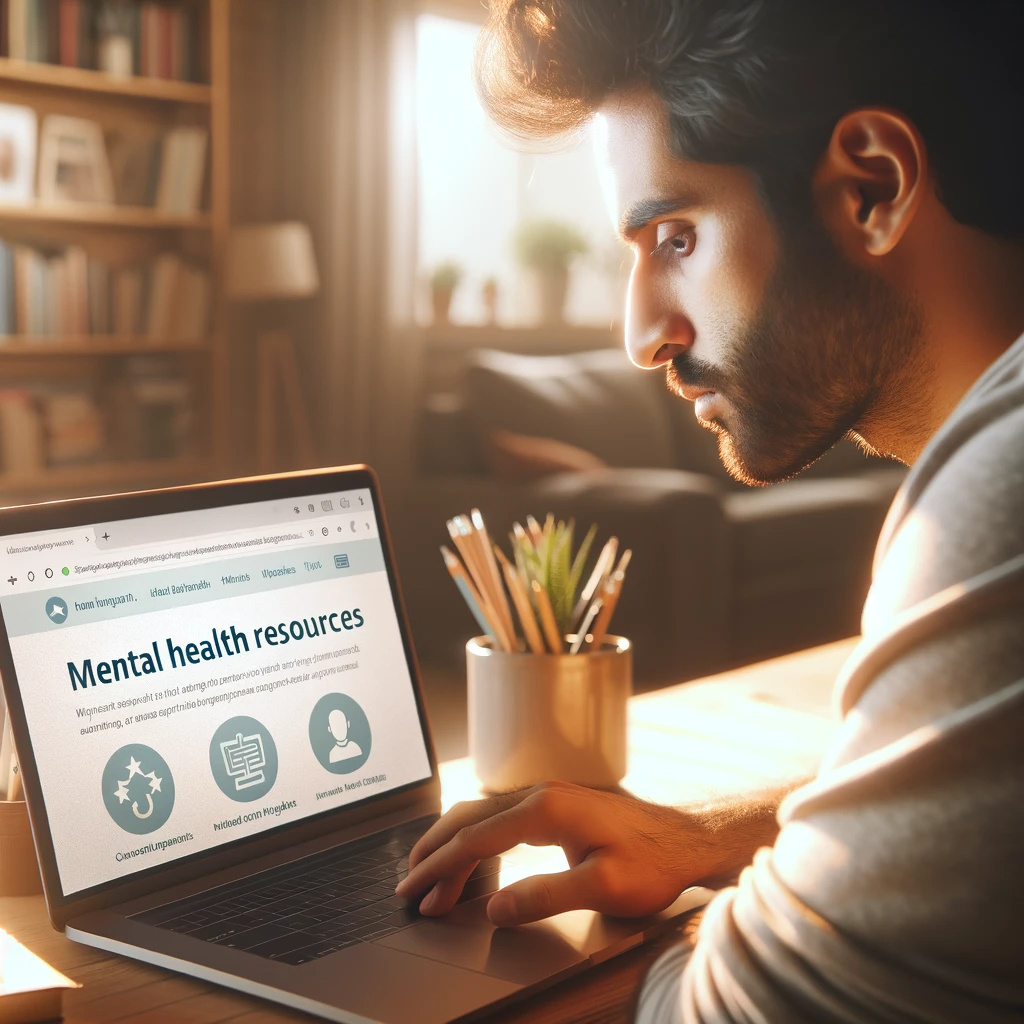Self Help
Table of Contents
Mental Health Self Assessment
The following questions may help you reflect on your own mental health. It’s not diagnostic but can help you evaluate your own well-being.
Answer the frequency for your experience of each of the following with “Never,” “Rarely,” “Sometimes,” “Often,” or “Always” How often do you:
- Feel overwhelmed by emotions?
- Worry about the future?
- Avoid daily activities?
- Feel tired or low on energy?
- Experience sleep disturbances?
- Feel isolated?
- Experience sudden mood changes?
- Lose interest in activities that you once did?
- Struggle with self-esteem or self-identity?
- Feel nervous or anxious without cause?
- Have difficulty concentrating?
- Become easily irritated?
- Have physical symptoms like headaches or stomach aches without a clear medical cause?
- Have you noticed any significant changes in your appetite?
- Rely on substances to feel better?
Please note that this is not a substitute for professional advice but if you do have any concerns about your mental well-being do visit your GP or contact any of the counsellors on our page.

Self Help Tools
Self help tools have been written on more topics than we can even list. Though the materials you need are bound to exist somewhere in this information rich time in history, finding the time to locate and read the information may end up causing additional frustration. We believe that the dialogue of therapy is the most effective means in dealing with individual and relational issues and this is why we provide the service.
Nevertheless, we have collected some of the top useful guides and share them here. Occasionally during therapy we will use these tools to accompany the therapeutic work. Here are some short summaries of the tools you can investigate.
Feeling Words List
Dundee Counselling has developed this list of feeling words in their emotional state categories in order of intensity. This is a helpful tool for anyone wishing to become more descriptive with their feelings. This is particularly helpful when using the Awareness Wheel.
Relaxation & Mindfulness
It is known that it is impossible to feel anxiety when our bodies are relaxed and we are breathing in a controlled and calm manner. This guided relaxation is helpful for practising between sessions and “learning” how to go to a more positive experience.
Recommended Reading
In a world where there are millions of books and resources available, it can be hard to find just the right resource for you. That’s why we’ve taken some time to collate some resources on a few of the more common topics that come up in therapy. Here you’ll find books to support your mental health, personal growth, and self-awareness.
Awareness Wheel
This tool was developed in the book called Talking and Listening Together by Sherod Miller et. al. to help couples communicate better. The Awareness Wheel will help you improve your speaking skills so that you can be more easily understood by others.
Listening Cycle
Along side the Awareness Wheel, the Listening Cycle is a tool developed in the book called Talking and Listening Together by Sherod Miller et. al. to help couples communicate better. The Listening Cycle will help you improve your listening skills so that you can actively assure others that you understand, provide empathy, and resolve conflict.
Emotional Intelligence
Emotional Intelligence is a large focus of counselling though it is not “taught” but rather “caught” in the process of self exploration. The tutorial on this topic explains the process of understanding emotions in yourself, how to deal with intense emotional reactions and how to switch emotional states in order to improve communication.
Personality Type
A personality type test can help you understand why you think, feel and behave the way you are naturally drawn to. A number of personality type tests are available to try and you can take a free one online using this resource.
Self Care
Self-care is the intentional act of taking care of oneself to maintain and improve health and well-being. This article unpacks what it’s all about.
Exercise and Mental Health
Regular exercise positively impacts mental health by reducing symptoms of depression and anxiety, improving mood, and enhancing overall psychological well-being.
Helpful Printer-Friendly Handouts
We’ve gathered a variety of resources that can enhance your understanding of numerous aspects of emotional intelligence in a printable format.
Journaling for therapeutic purposes
Journaling provides a therapeutic outlet for self-reflection, emotional processing, and personal growth, enhancing overall mental well-being.
NHS Scotland Resources
If you are looking for help individually, we suggest the tools developed by the NHS Scotland. Their website helps you eliminate issues in a systematic way to help you optimize your efforts in getting to the heart of the issue.
Care for the Family Resources
If you are looking for help relationally, (either within or out with the family) we suggest the tools developed by Care for the Family. They have written on topics like: marriage, parenting, divorce recovery, money issues, losing a loved one, etc.
Help in Crisis - Tayside
If you are in a particular time of crisis and need help, please search these pages for type of help you need.
